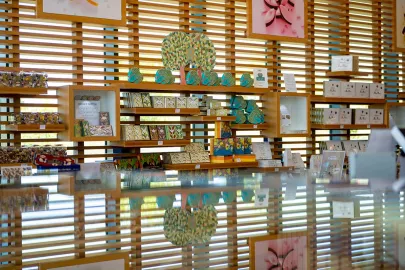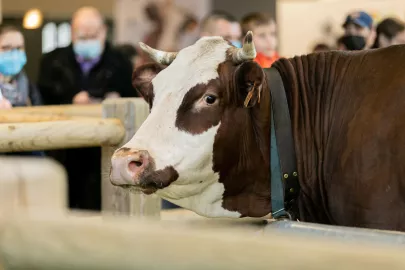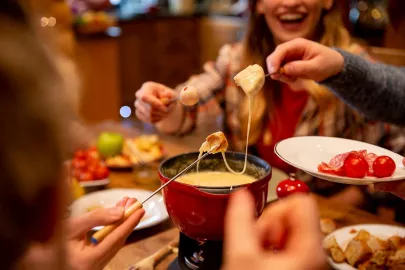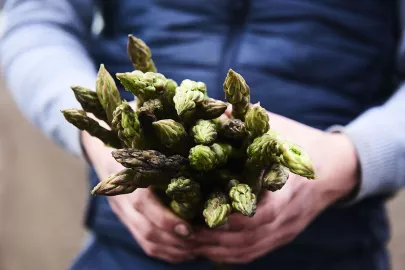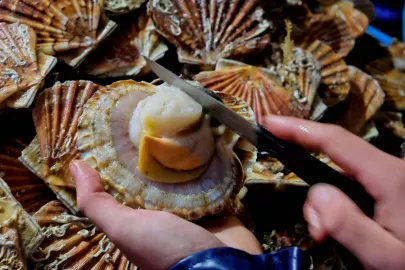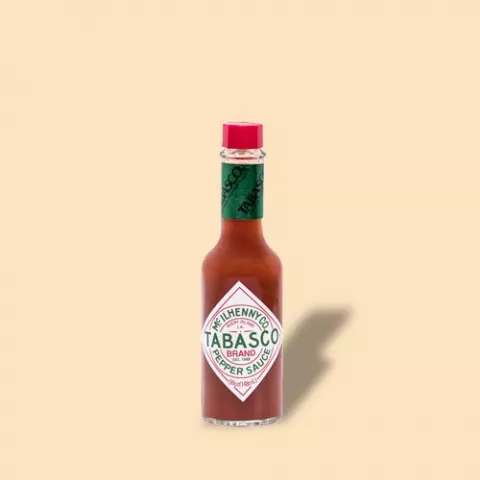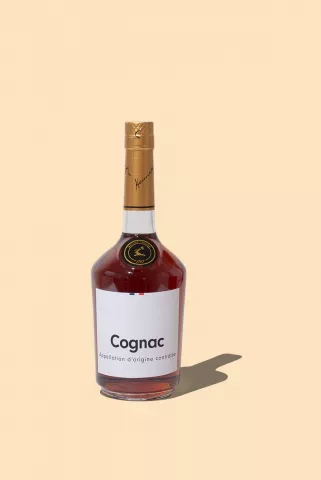Moving to France isn’t always as glamorous as it seems. However, for those who have the guts to do so, uprooting to France can be one of the most rewarding decisions (if not the best decision) one can make. Get a first-hand look at what it’s like to start a new life abroad through our ‘Expat Diaries’ series. This month’s edition, we’re introducing you to Nathan Ratapu.

Tell us a bit about your childhood / where you are from.
I was born in California, but we moved to New Zealand when I was nine. My dad is originally from there, so after 9/11, my parents wanted to try out a new life there. I grew up in a really small town on the East Coast called Gisborne. There, I came to know my Maori heritage, and I became a total Kiwi, but I was desperate to come back to the US for university, so I left in 2009 to go to school at Columbia University in New York.
What did you study and how did that ultimately translate into wine?
I studied political science, but I mostly did internships in film and television. I worked for the Sci-Fi network for 3.5 years after I graduated, but then I really wasn’t happy. I found the TV industry to be really soulless. At this time, I started taking wine classes at Brooklyn Wine Exchange. Tim, the wine director there, created this culture for casual wine enthusiasts who wanted to build a base of knowledge (through the winemakers that would come by, the sales reps, etc.). By 2016 I was working freelance for production companies on the West Coast, and I really wanted to get into wine, so I got a job at September Wine and Spirits.
What did you study and how did that ultimately translate into wine?
I studied political science, but I mostly did internships in film and television. I worked for the Sci-Fi network for 3.5 years after I graduated, but then I really wasn’t happy. I found the TV industry to be really soulless. At this time, I started taking wine classes at Brooklyn Wine Exchange. Tim, the wine director there, created this culture for casual wine enthusiasts who wanted to build a base of knowledge (through the winemakers that would come by, the sales reps, etc.). By 2016 I was working freelance for production companies on the West Coast, and I really wanted to get into wine, so I got a job at September Wine and Spirits.

© ©Nathan Ratapu
What brought you to France?
While working at September Wine & Spirits, I traveled to France in 2017 and ended up working remotely for a month, which is where and how I met my boyfriend Baptiste (now my husband). We were long distance for two years, and the plan was that we were going to move to France at some point in time.
How did you end up getting into natural wine specifically?
Upon returning from France, I ended up becoming the General Manager at Thirst Wine and Spirits. That was where I really discovered that natural wine interested me the most, particularly because of the storytelling aspect of it. To me, it was the best intersection of all of my interests—politics,wine, storytelling. I ran Thirst for about a year, but then Baptiste got his job as a Professor (in France) and I figured it was the time to move.
What did you learn at Thirst?
I fine tuned how I was able to tell stories and be a part of a community that was there. I didn't have to convince people to drink something (natural wine), which sometimes is still a problem in the industry.
Tell us a bit about your first time visiting France. Where did you go and what did you experience?
The first time I was in France was when I studied abroad in Paris for six months in 2012. I lived in the 15th arrondissement and I was definitely a poor student, so I almost exclusively spent my time in the 15th, 6th, and 5th arrondissements, because I was at the Columbia extension near Montparnasse. So when I came back, it was a totally different experience than when I came earlier in life. Though for me, that time built a love for the city, especially from the cultural aspect. I was desperate to come back at some point in my life, so I returned in 2014 for vacation. That time around, I fell in love with the culinary aspect of France, the quality of products, people's daily interactions with food, and of course, wine.
So what pushed you to ultimately move to Paris? When did you move here?
As I'm sure all married Euro-American couples have dealt with, it came down to who was going to move. In the end, it was going to be much harder for Baptiste to move to New York logistically. I already spoke French, I had lived in France for a period of time, so I was like let's do this! Of course I was still super scared about moving, finding a job, and especially rebuilding myself, particularly after really having established myself in NYC for ten years, but if we were going to do it, that was the moment. I ultimately moved in October 2019.

© ©Nathan Ratapu
How did you feel during your first few months here? Did you ever feel moments of regret?
Yes, likely. The first few months I was here I worked harvest for 3.5 weeks in Montlouis-sur-Loire, and that was an eye-opening moment in itself. I’m very glad I did it, but it opened my eyes a lot. I was in a rural setting, I realized that my French was not as great as I thought it was, and my understanding outside of France outside of an urban environment was limited. It was a real eye opener.
In Paris, I realized that I was no longer seeing the novelty side of the city, that’s to say, I was interacting with a side of it that I hadn't expected—a classist side, at times even a racist side. It was shocking in comparison to the United States. Halfway through a sentence, people immediately wanted to know where I was from and what I was doing here. I had a real profound sensation of alienation for a long time, even though my French was improving and I was working at a wine shop, I was still always confronted as a foreigner.
What has pushed you to stay?
My husband, of course, but I think I had to accept that this experience that I was having was one that most people of color, and even women, go through every day. I told myself that I needed to suck it up and work through this, and I think after a certain point, I realized that I had to just change my way of thinking from a cultural perspective. I was constantly trying to impose my own cultural perspective on French society, and that's not just how people saw things. I had to be more engaged in why French people act the way that they do, think what they think etc.
How did you find community as an expat in Paris?
I had a pretty different experience than most people, because as soon as I moved, there were massive strikes, then there was COVID. I was lucky to make friends, particularly people that I worked with. When you're dealing with hard times and rough days, the friendship and bond transcended language barriers and backgrounds. Making friends that weren't my husband's was really hard, though. I'm 30, I'm married—I didn't feel that same impetus to make a million French friends and meet people as when I came here eight years ago.

© ©Nathan Ratapu
You recently opened your own wine shop in Paris. Congratulations! Tell us about it.
It's called Rerenga Wines. Rerenga comes from the Maori word for terroir (there's no exact translation), but really it means everything that surrounds a particular place. I was inspired to start the shop after the second lockdown here, so I looked for a space and found one in January. It's two blocks from where I live, which is great. The idea behind the shop is that it's a cave inclusive, meaning that in addition to selling wine, I’m looking to address sexism, racism, and homophobia in the wine world. The shop is a space that is about bringing in all different types of people and making them feel comfortable, not only with wine, but also with sharing their ideas and own experiences, as well as what they bring to the table when they drink wine. I also have dialogues with the winemakers that I work with to make sure that we share similar ideas and that they respect this.
Do you plan on staying in France? Paris, specifically?
Yes, now that I have my own business. Opening the shop also completely changed my view of living here. The process was actually an incredibly good experience, which is a weird thing to say. I could never imagine having that kind of support from New York, financial institutions, etc. I received a mentor, was able to get loans easily, etc.
What is your 5-year plan? 10 year?
So in addition to the wine shop, there’s also a small bookshop side to it that addresses the same issues stated above. The books I work with engage with literature addressing those same kinds of questions: social science, feminism, LGBTQ issues, etc. My long-term goal for the space is to have classes, as well as use the space as an event area for different organizations who are looking for a safe space. I want the shop to be a place where people who are interested in wine, as well as many other topics and issues, can have intersectional conversations.
What do you love most about life in France?
Bread! And of course being together with my husband.
What do you miss most about the United States?
Little conveniences, like things being open on a regular basis. Honestly, also, I miss American banks. Dealing with banks on a regular basis here is… complicated.
What are some of the pros/cons of living in France?
Pros: leisurely daily life, general protection of your health and well being. The standard is higher than in the United States. Cons, definitely the expediency of things. When you move here, you’ve got to put that notion aside! You will not get what you want when you want it, and you'll have to try at least four or five times.
What is a piece of advice that you'd give to someone considering moving to France?
Be prepared to be alienated. And don't take it so personally.

